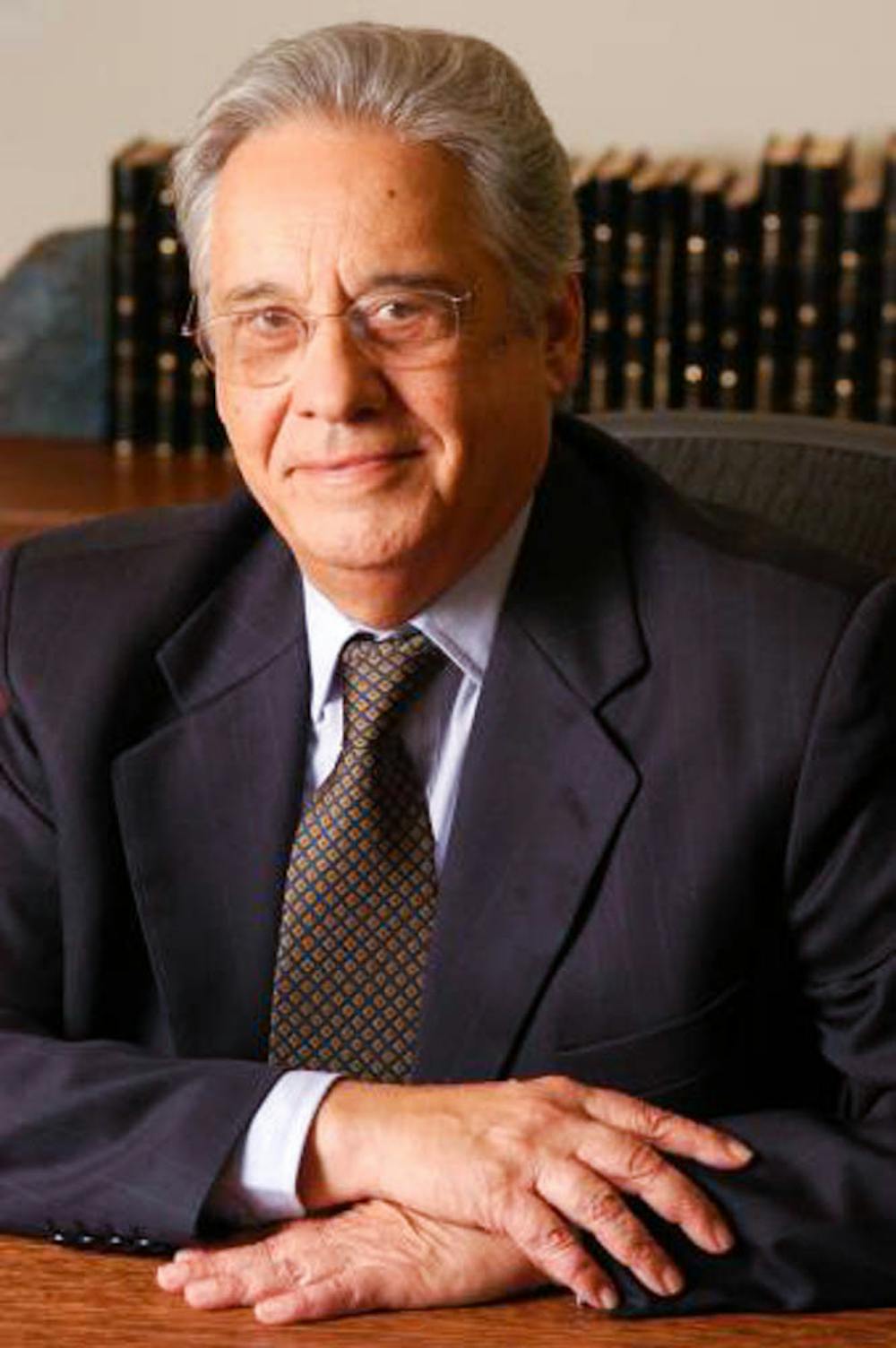“There is a crisis of representative democracy all around.”
This was the sentiment that Former President of Brazil Fernando Henrique Cardoso expressed to The Herald ahead of delivering the 95th annual Ogden Lecture titled, “Democracy and Corruption in Brazil and Latin America Today,” at the John Carter Brown Library Thursday night.
Contrary to the lecture’s title, Cardoso’s talk touched on political problems facing not only Latin America, but also the United States and Europe. He explained the crisis with regards to the role of political parties around the world. In the 19th century, parties represented different social classes. But now, increased social mobility has degraded those traditional party lines, so people are left without a clear party identification. In turn, parties are not strongly linked to citizens or democratic institutions, Cardoso said.
“We are in a transition between very stable political organizations” to less stables ones, he told The Herald.
In Latin America specifically, generalized corruption and democratic gridlock have increased as the party system has weakened, Cardoso said. He pointed to the “widening gap between peoples’ aspirations and the capacity of political institutions to respond to the demands of society.”
All of these factors “pave the way to demagoguery,” Cardoso said.
Cardoso turned to address issues plaguing his home country. In the face of corruption charges against major political figures, such as Former President Dilma Rousseff and Former President Lula da Silva, Brazil is confronting a “moral crisis arising now (after) the disclosure of a widespread system of corruption,” Cardoso said.
Brazil requires a majority in its congress to pass bills, but, since there are currently 28 parties in the Brazilian legislature — and no party with more than 20 percent of the representatives — the president’s party must build a coalition to advance any legislation. This system “is not a choice, but an imposition on the president,” Cardoso said.
Over the last decade and a half, the number of political parties has increased in Brazil and, as a result, presidents are forced to bargain with more and more representatives for votes. Though corruption has always existed in Brazil, this process has made it much more widespread, Cardoso told The Herald.
In 2005, for example, the Mensalão Scandal implicated da Silva’s government in a scheme that paid representatives in monthly installments for their votes. After this incident, the presidential system transformed from “a system of coalition to a system of corruption.”
More recently, the Petrobras Scandal — in which government-appointed executives of the state-run oil company diverted money from public contracts into their own pockets — “disclosed the systematic nature of corruption in Brazil.”
Now, cynicism toward government percolates throughout the “educated middle class” and the Brazilian people at large, he said.
Yet Cardoso struck a tone of optimism at the end of the talk. In previous generations, Brazilians would welcome a military coup to rid their society of corruption, he said. But now, citizens are putting their faith in democratic institutions, such as the court system and federal police, to remedy the country’s political problems. “We know the names of the 11 justices of the Supreme Court,” Cardoso said. “They are household names.”





